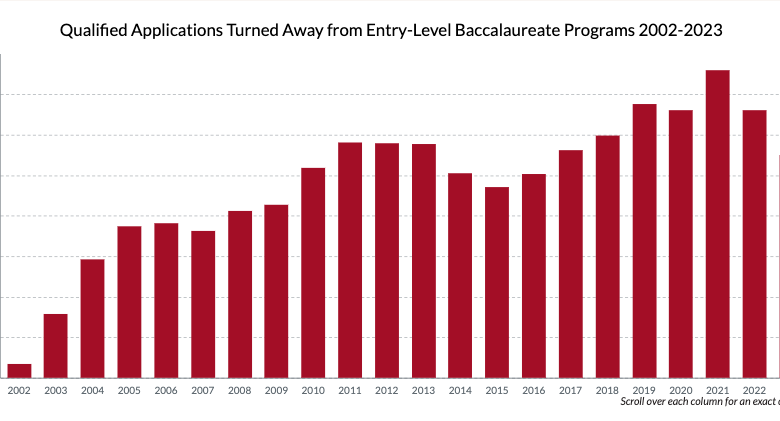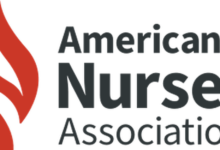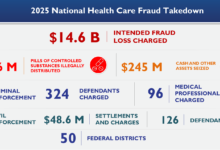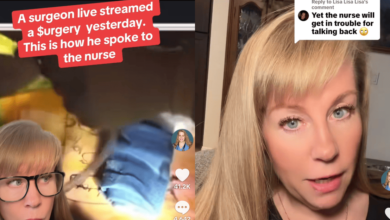Why The US Desperately Needs More Nursing Instructors

There’s a lot of talk about the dangers of the nursing shortage, but one important piece of the puzzle that drives part of that shortage often gets left out—the lack of nursing instructors to teach future nurses.
As data released by the American Association of Colleges of Nursing (AACN) in April 2024 revealed, there has been a steady decline in students enrolling in BSN, Master’s, and nursing PhD programs. Translation? There are a fewer students preparing to be the future educators of our nation’s nurses.
Here’s what that means for all nurses and why current nurses may want to take a second look at becoming a nursing instructor. (Hint: there are some work-from-home opportunities!)
The AACN conducted a detailed and comprehensive national survey of nursing schools that offer BSN and higher degrees. The survey was conducted in 975 schools in the fall of 2023 with a 90.1% response rate and compiled data on:
- Student enrollment and graduation
- Faculty and dean demographics
- How many applications the schools received
- How many qualified applicants were rejected
- Other key benchmarks
Overall, the study showed a modest increase in the number of students enrolling to pursue their BSN, up from 2022. However, the number of nursing students enrolled in a BSN program is still lower than the peak enrollment year of 2021.
Other key points of the survey revealed:
- Enrollment in bridge RN-BSN programs is down, a decrease for the 5th consecutive year
- Enrollment in direct-entry RN programs has remained steady
- Master’s programs for nursing decreased by almost 1%, a third year of decline
- PhD in nursing programs declined by 3%, marking the 10th year of decline
- DNP (Doctors in Nursing Practice) enrollment increased, a trend of expansion over the past 20 years
The AACN noted that they were “concerned” because the survey showed that nearly 10,000 qualified applicants were turned away from higher-level nursing programs on account of “insufficient clinical placement sites, faculty, preceptors, and classroom space, as well as budget cuts.”

Clearly, we need nursing teachers to teach and lead future nurses. But why is there a decline in the number of nurses looking to become instructors? There could be a few things happening.
Younger nurses early in their career
The 2023 survey could reflect the current nursing landscape, which is primarily made of up younger nurses just starting their careers. A 2022 survey found that a large percentage of nurses have less than 10 years of experience and a mean age of 36. These nurses may not be ready or equipped to become teachers—but that doesn’t mean they won’t later on.
Finances
Advancing your education as a nurse can be expensive and due to inflation and high costs of living right now, many families are struggling to get by. Especially with younger nurses who have started their careers and may also have young kids to care for, adding on another degree may be too big of a challenge.
Lack of visibility
Not everyone hears about nursing instruction as a career path—there’s a lot of focus on becoming a nurse and the different pathways available to nursing, but not as much clear guidance on how to become a nurse who teaches other nurses. Becoming a nursing professor is often treated as something you do “after” or “alongside” your “main” nursing career, not a goal to pursue on its own.
If your interest is piqued about becoming a nursing professor or teacher, you should know that you have three different options for teaching others as a nurse:
- Clinical Nurse Instructor: A Clinical Nursing Instructor teaches hands-on nursing skills to nursing students in a clinical setting. Remember the nurse who led your group of nursing students around the hospital and helped you learn critical skills like your first IV or catheter placement? That’s a clinical nurse instructor. These nurses may not be associated with the hospital and often have fewer educational requirements than faculty nurses. In some programs, all you need is an Associate’s or Bachelor’s to become a Clinical Nurse Instructor.
- Faculty Nurse: These nurses teach at the educational institutional level and are more likely to be in a classroom setting. These teachers can range from lower-level nursing all the way up to PhD nursing. Faculty nurses typically need at least a Master’s and a PhD is preferred.
- Clinical Nurse Educator. A clinical nurse educator is typically employed by a healthcare facility to be an on-site educational resource. They don’t provide formal instruction through a planned program but instead are responsible for professional educational development at the facility. A nurse educator would be the nurse who would set up training for new equipment at your hospital, for instance, or lead a workshop on new protocols. Educational requirements vary by facility for this role.
Typically, you will need at least a BSN to teach at a clinical level. Anything above clinical instruction usually requires at least a Master’s and in some cases, a PhD.
However, you may not need a Master’s in a nursing specialty. In other words, you don’t have to become a Nurse Practitioner to teach. Many schools offer Masters in Nursing Education or similar educational-based Masters degrees you can pursue if your goal is education and/or research. These advanced degrees may be less rigorous and competitive than a clinical NP degree pathway.
One important note: if you are interested in becoming a nursing instructor but are worried you don’t have the proper educational background for it, it’s always worth talking to the school you’d like to teach at. Some facilities will allow you to pursue the preferred degree while getting started as an instructor—and as a bonus, you may save on tuition along the way too!
Following professional nurse resources can also help you see what’s possible in the nursing education world. For instance, on Nurse.org’s Instagram page, a lively discussion surrounding nursing instructor opportunities happened, with several nurses revealing they became nursing teachers with just their BSN degrees.
“I’m an adjunct at a private college…I only have my BSN,” wrote @i_am_just_a_nurse. “You can become a nursing instructor without [an] MSN or NP or PhD.”
Another user explained that if you want to become a nursing instructor, think of the “one step above” approach—in most states, you have to be one educational step above of any prospective students you’d like to teach.
“If you obtain a BSN, you can only do clinical and one level below which is an ASN. If you have a MSN you can teach BSN and ADN. If you have a DNP or PhD, you can teach the NP tract or MSN courses. PhD is Doctoral level courses either DNP or PhD students,” @Zetanpdoc1920 wrote.
Last but not least, it is worth noting that both clinical and educational nursing instructors can have work-from-home opportunities. It’s more likely that you could teach educational nursing classes from home, but some clinical skills can be taught remotely via online modules.
However, if your goal is to have the chance to work from home, you will probably have more opportunities for remote educational instruction in a higher-level faculty position with a Master’s or PhD.






